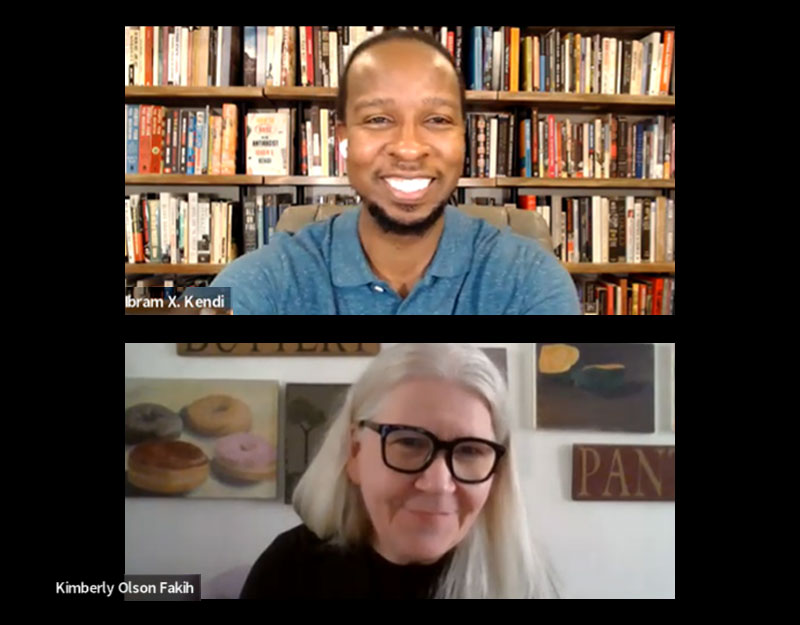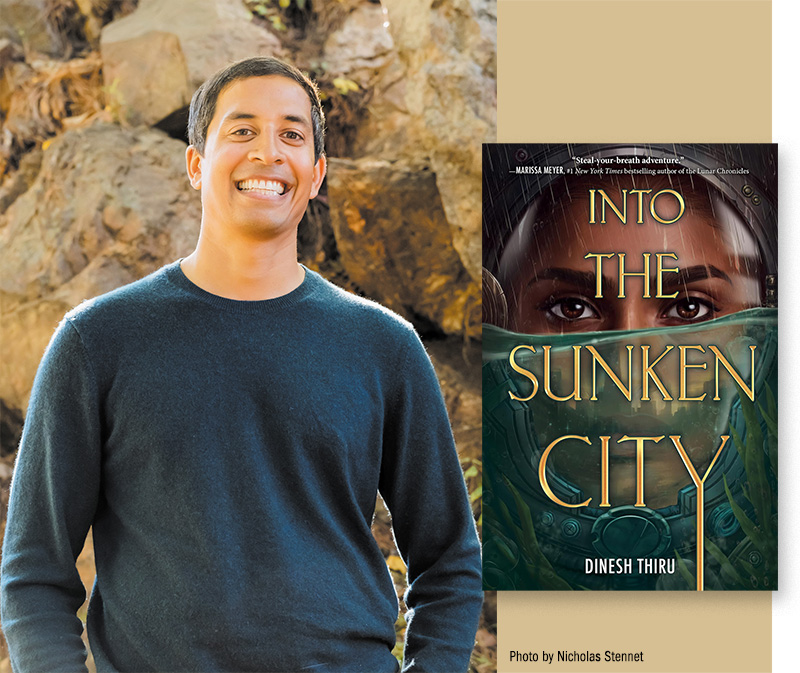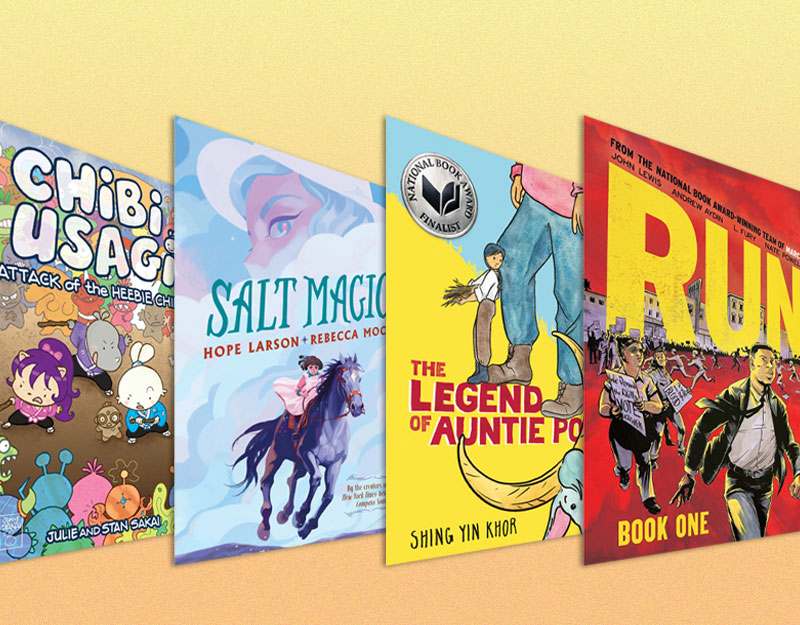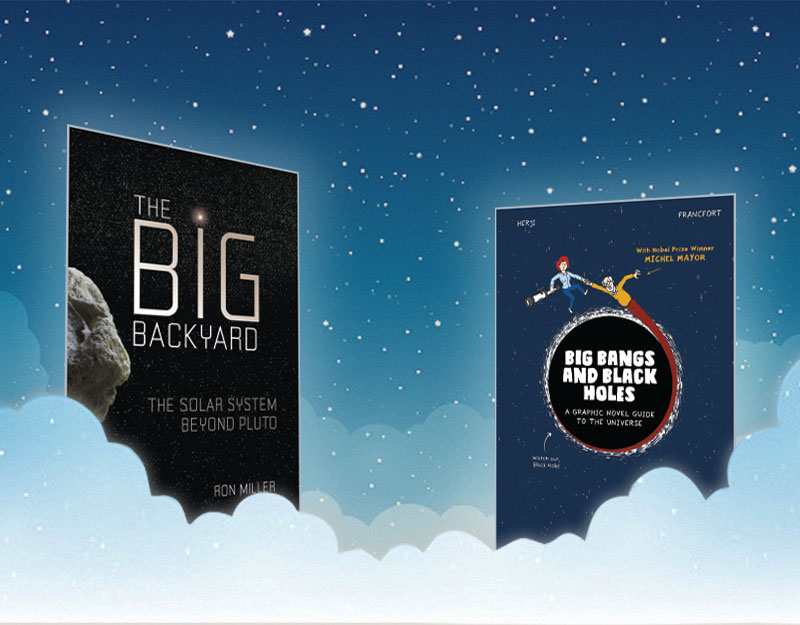WBBT Interview – Louis Sachar!
 You will hear a lot of talk these days about Newbery winners and whether or not they are "kid-friendly", "readable", or "popular". This same debate raises its ugly head on such a regular basis that you could probably time when the next one begins (my prediction: 3 1/2 years). That’s why it’s so nice to read a book like Holes. Considered one of the most popular Newbery winners of the last 25 years and one of the few recent books to be turned into a film (an accurate film no less) Holes pleases pretty much anyone who reads it. Its detractors are few and far between. Now we are able to celebrate its ten-year anniversary and as such Farrar, Straus, and Giroux are reprinting a lovely 10th anniversary edition with rather breathtaking endpapers, for those of you who care about such things. They’ve also been kind enough to allow the man himself, Louis Sachar, a chance to be interviewed. Here then is my own brief Q&A with the author of this amazing title.
You will hear a lot of talk these days about Newbery winners and whether or not they are "kid-friendly", "readable", or "popular". This same debate raises its ugly head on such a regular basis that you could probably time when the next one begins (my prediction: 3 1/2 years). That’s why it’s so nice to read a book like Holes. Considered one of the most popular Newbery winners of the last 25 years and one of the few recent books to be turned into a film (an accurate film no less) Holes pleases pretty much anyone who reads it. Its detractors are few and far between. Now we are able to celebrate its ten-year anniversary and as such Farrar, Straus, and Giroux are reprinting a lovely 10th anniversary edition with rather breathtaking endpapers, for those of you who care about such things. They’ve also been kind enough to allow the man himself, Louis Sachar, a chance to be interviewed. Here then is my own brief Q&A with the author of this amazing title.
Fuse #8: Newbery winners come and Newbery winners go, but in my experience Holes has been perhaps one of the most successful and popular winners in the history of the award. A perfect balance of kid-friendly content and stellar writing have your feelings towards it changed any in the intervening 10 years or so since it won its award?
ADVERTISEMENT
ADVERTISEMENT
Louis Sachar: This may seem odd, but I don’t really think too much about Holes. This is the 10-year anniversary of the book, but I actually wrote it over 12 years ago. It took me a year and a half to write, and during that time, it occupied my thoughts 24-hours a day. When I’m working on a book it is a very intense obsession that increases daily until the book is finished. Once the book is finished, I’m done with it, and its hard for me to connect with that part of me which wrote it.
 Fuse #8: Of course Holes ends up being one of the most "taught" books in school these days. Rather than encountering it as a book to read for pleasure, kids are assigned it in droves. Is that how you would have envisioned its use and would you encourage or discourage teachers from utlizing the book in this manner?
Fuse #8: Of course Holes ends up being one of the most "taught" books in school these days. Rather than encountering it as a book to read for pleasure, kids are assigned it in droves. Is that how you would have envisioned its use and would you encourage or discourage teachers from utlizing the book in this manner?
Sachar: I can only hope that the teaching of the book enhances the enjoyment of the book. Good teachers can do that.
Fuse #8: You’ve already written one sequel to Holes in the form of Small Steps. Have you felt any inclination to follow the stories of any of the other characters from Holes or are you content to end it with that?
Louis Sachar: I don’t plan to write any more sequels, and I don’t really consider Small Steps a sequel. The main character, Armpit, was not explored very deeply in Holes. His story would exist on its own, without Holes, and is very different from Stanley’s.
Fuse #8: On your website you’ve said that the rejected original title of Holes was going to be Wrong Place, Wrong Time, Wrong Kid. Why was that title taken out of consideration?
Sachar: It’s funny thinking back to that. The title, Holes seems so obvious now, but at the time I didn’t know what to call the manuscript. Whenever I mentioned Holes as a possible title, the most common response I heard was "What???" Still, I felt that title was more substantial than the other title you mentioned, and it had a Zen kind of mystery to it.
ADVERTISEMENT
ADVERTISEMENT
 Fuse #8: To my mind Holes has the distinction of being one of the very few basically realistic fiction titles to be successfully turned into a film for children. It’s a very accurate portrayal of the book too. Did you have a lot of input on the film and, for that matter, have you continued to have much contact with Hollywood in any way? I know that working with filmmakers can prove to be a bit of a distraction for a writer. Have you felt that way?
Fuse #8: To my mind Holes has the distinction of being one of the very few basically realistic fiction titles to be successfully turned into a film for children. It’s a very accurate portrayal of the book too. Did you have a lot of input on the film and, for that matter, have you continued to have much contact with Hollywood in any way? I know that working with filmmakers can prove to be a bit of a distraction for a writer. Have you felt that way?
Sachar: I wrote the screenplay and worked closely with the director. It was never my objective to do an accurate portrayal. Rather it was to make the story work as a movie, and ironically, for that reason I think it became an accurate portrayal. It was a fun and very exciting experience, but it was definitely a distraction as well, which is why it took so long between Holes and my next book. I had to remind myself to go back to taking the "small steps" necessary to writing a book.
Fuse #8: My husband has a unique theory about the book. He says that it’s essentially the story of race in America and what we owe to one another. Is there any merit to this theory or is that just reading way too much into the title?
Sachar: Race is certianly an aspect of the book, but I never thought of it as a book about race relations in America. At Camp Green Lake I tried to minimize the issue of race. When Stanley first sees some of the other boys, their race is part of their initial description, but after digging all day, they were all the color of dirt. I wanted the story at the camp to be the boys versus the adults, not white against black. They were all in this together, and once Stanley dug his first hole, he was accepted as one of them. It was only when Zero helped Stanlely dig (in exchange for reading lessons) that the other boys turned against Stanley.
Fuse #8: Finally, you do not discuss titles as you are working on them. So I guess my only other question for you is what’s next?
Sachar: I will only says this about it. In my spare time, I play competitive bridge. The book has a lot to do with that.
Filed under: Uncategorized
About Betsy Bird
Betsy Bird is currently the Collection Development Manager of the Evanston Public Library system and a former Materials Specialist for New York Public Library. She has served on Newbery, written for Horn Book, and has done other lovely little things that she'd love to tell you about but that she's sure you'd find more interesting to hear of in person. Her opinions are her own and do not reflect those of EPL, SLJ, or any of the other acronyms you might be able to name. Follow her on Twitter: @fuseeight.
ADVERTISEMENT
ADVERTISEMENT
SLJ Blog Network
One Star Review, Guess Who? (#202)
Exclusive: Giant Magical Otters Invade New Hex Vet Graphic Novel | News
Parsing Religion in Public Schools
Take Five: LGBTQIA+ Middle Grade Novels
ADVERTISEMENT








One of my favorites, thanks! (Author AND book). Although wouldn’t this book be just as awesome and popular without the award? I’m starting to think that ALL awards are over rated.
Years ago, following my brief conversation with Louis Sachar at the 1998 National Book Awards, this noble gentleman did something I’ll never forget—he wrote my son a letter. My son was just learning how to love a book and was wild for Sachar’s Wayside stories, and when Mr. Sachar learned of this, he reached out to my son with a wonderful note. In doing that, he claimed a special place in my heart.
I’m so jealous that you got to interview THE MASTER.
Can’t imagine where competitive bridge will fit into the Sacharverse. Definitely something to look forward to.
Thanks for this great interview with a great author. I enjoyed it very much!
Great interview! One of my favorite things ever was seeing Mr. Sachar’s adaptation of Holes for the Seattle Children’s Theatre.
Thanks for the geat interview. No idea he wrote the screenplay for the movie.
Thanks for asking all these great questions. My children love Mr. Sachar’s books. Holes is a particular favorite–both the book and the movie. I never thought a movie version of a book would be as good, and now I know why.
love ur books!!!!!!!